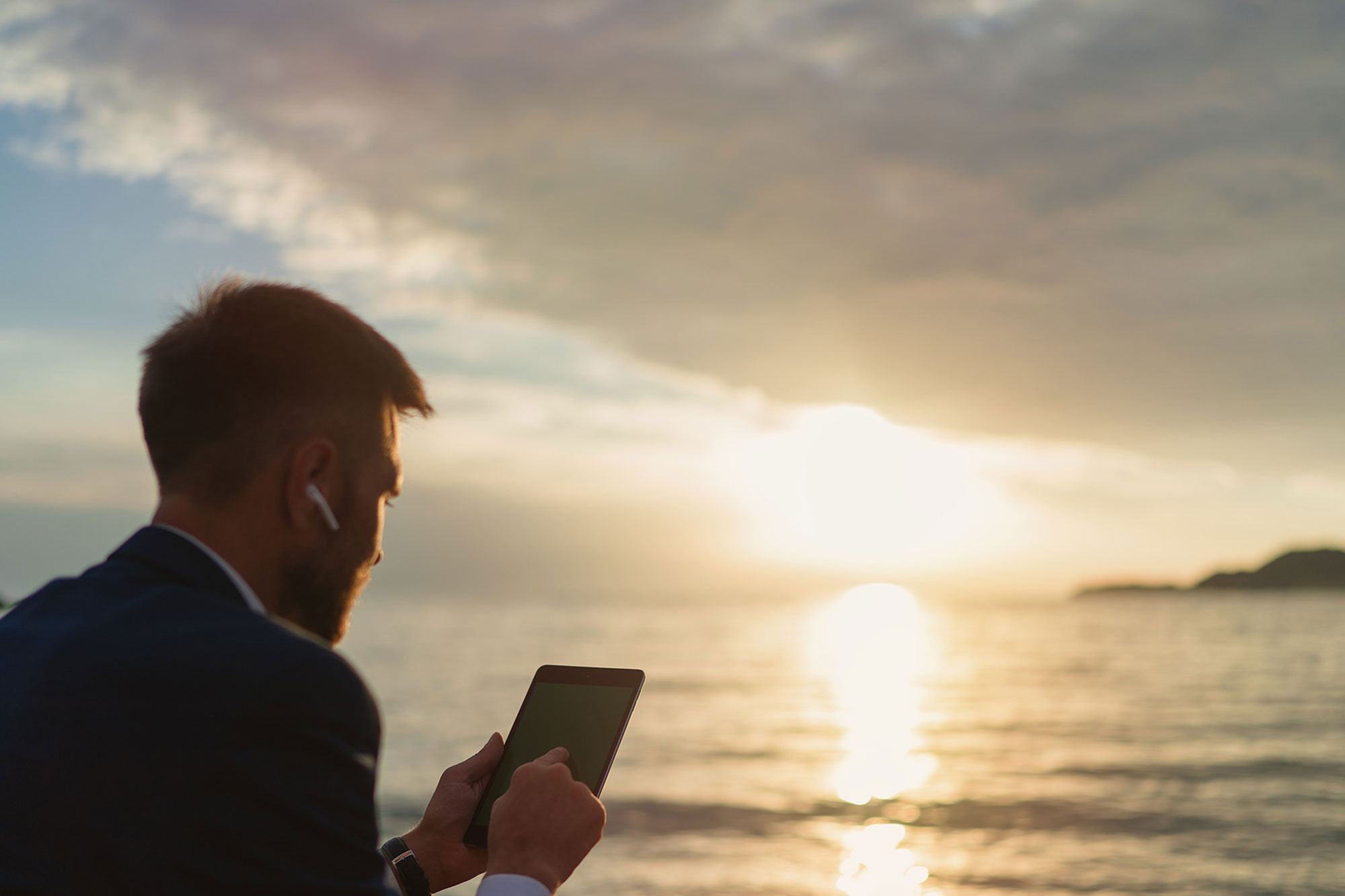How to extend a business trip privately
You can easily add a few days of vacation to a business trip - and the boss even pays for the flights. This is how it works.
Bleisure Travel combines work with holidays
Bleisure Travel is a combination of the words business and leisure. And younger people in particular are fuelling this trend, blurring the boundaries between job and leisure. This is mainly due to the fact that the working world has changed a lot in recent years and the job no longer consists of pure professional status for which one is willing to sacrifice oneself and everything.
But what exactly does Bleisure Travel mean? The definition is rather vague so far, as this trend is quite new. Basically, however, one can say that whenever business trips merge with leisure time, one can speak of bleisure travel. And since 2009, Bleisure Travel is even legalised, as the Federal Fiscal Court decided.
More and more employers accept this approach and recognise the advantages of this mix: increased productivity and more relaxed travel are just two of its advantages. Both parties think this is a positive thing.
A study from 2014 states that 83% of all business travellers also use the time in a new city to take a closer look at at the place.
Pure business trips are increasingly taking a back seat.
While in the past it was rather top managers who took advantage of the opportunity to combine business with private life, it is currently more the millenials and younger ones to follow this trend. This age group accounts for 36%, while 40 and 50-year-olds account for just 18%.
But where does the business part of a business trip end and where exactly does leisure time begin? If you define leisure time as time that is planned in a self-determined way, then an extensive lunch in a trendy restaurant without business partners or customers is already part of the leisure time. But Bleisure Travel goes one step further.
Business trip and holidays
You can easily add holidays to a business trip. However, it is essential that this is done transparently by letting the employer know in good time. Otherwise his or her interests will be abused according to labour law, something which is, of course, unacceptable and will have negative consequences.
Whereas a few years ago, attaching vacation days to a business trip was considered rather negative, this type of mixing now enjoys generally a more positive reputation. As long as all this is transparent, there is nothing to fear. The general mentality towards work has actually changed, and especially salaried employees and freelancers benefit from this development. Growing mobility, digitalisation and not least globalisation have spurred this process.
This resulted in a classic win-win situation: the boss has a more satisfied and efficient worker and the worker no longer has to scurry from business trip to business trip without seeing the worthwhile holiday destination along the way.
Business trip extended privately: This must be considered
Extending a business trip privately is not difficult on paper, but there are still a few points to be considered carefully, which are particularly important to the tax office.
- The commercial part of the business trip is tax-deductible despite private extension.
- If the business trip is extended privately by a few days, the joint costs are split into a private and an official part. The common costs include flights, for example.
- Hotel and catering costs should be certified separately - then the business costs will be 100% deductible.
Exceptions: If the private extension does not incur extra costs for the business trip, the employer will usually pay for it. However, if the stay is extended for business purposes because the return flight two days later is cheaper, the employee also bears the cost of meals. - If, on the other hand, a customer appointment is made during holiday, at most one special trip with a corresponding daily flat rate can be declared as business expenses if the business part does not exceed 10%.
- If unplanned days off occur during a business trip, these days are not considered as holidays and can be entered 100% in the travel expense report, even if the employee uses these days for his or her free time.
- If an accompanying person such as your partner is taken on a business trip, the employer does not have to pay for the double room or similar. In this case, it is advisable to obtain comparative offers from the hotel where the alternative costs are listed. The same applies to all other expenses such as food and drink.
- In the case of a mixed trip - i.e. a bleisure trip - all receipts should be duly collected or documented by the traveller. It is best to use separate credit cards for different costs or pay private expenses directly in cash. At the end of the trip, all expenses should be clearly assigned.
- If the trip is extended privately by less than 5 days, the travel expense allowance is calculated as if only the business trip had taken place without private extension.
- If the trip is extended privately by more than 5 days, only the directly additional travel expenses are reimbursed. In this case, the focus is on private pleasure, regardless of how long the business trip has lasted.

![[Translate to Englisch:] Dienstreise privat verländern Header](/fileadmin/_processed_/3/f/csm_Dienstreise-privat-verl%C3%A4ngern-Header_8f49e0ece8.jpg)
